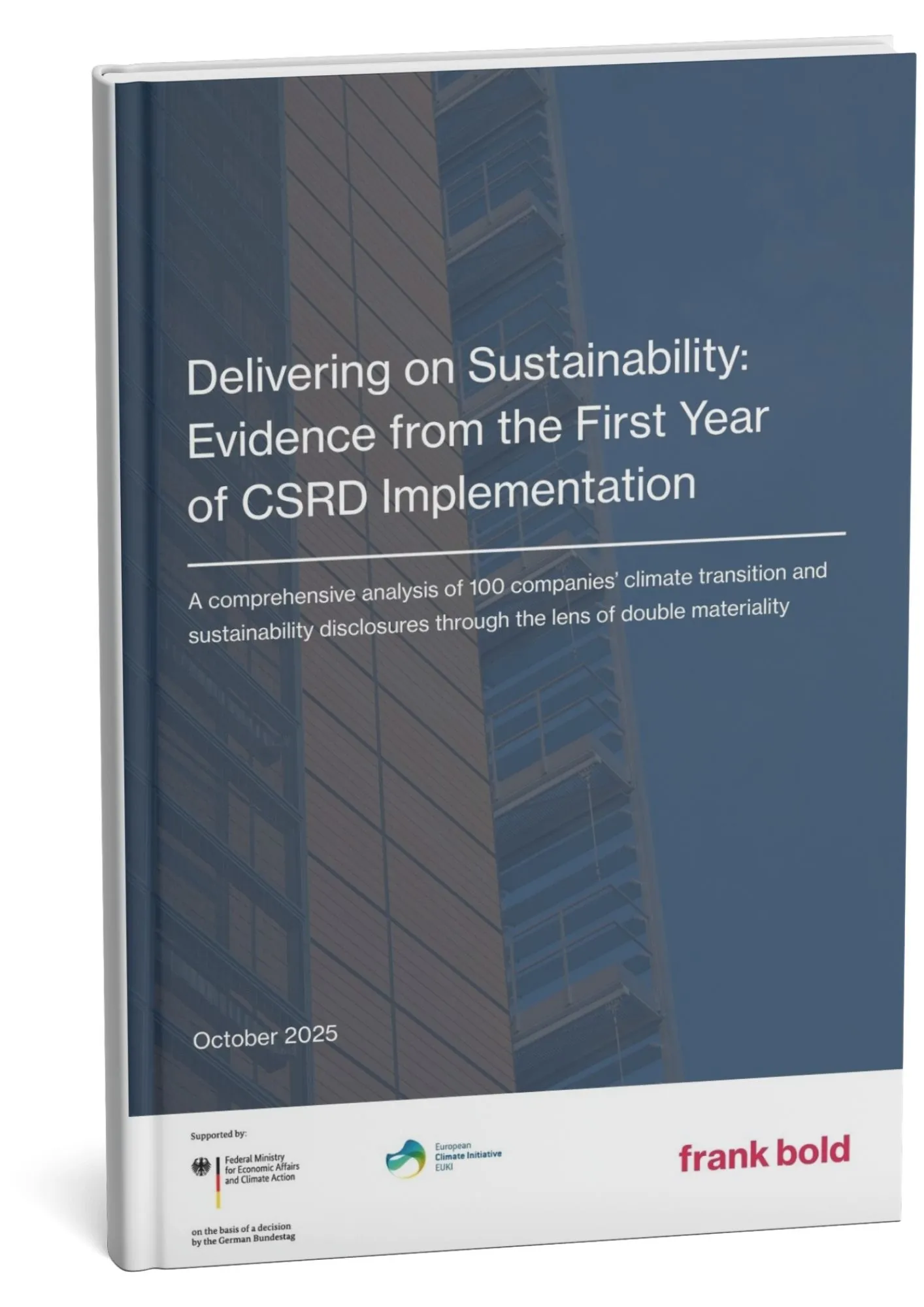If we expect the market to bring about change in the green transformation, if we expect investors to bring about change, then we need to provide them with relevant information about companies in terms of sustainability and environmental impact.
Read more: Final standards for ESG reporting are on the table. Companies must learn to track their impacts

We will calculate your company's carbon footprint and help your company better analyze risks and opportunities by implementing ESG tools. Contact us.
In this regard, it is important to take stock of internal processes, which is the third major step for companies starting with reporting. This is because there is a set of processes that a company needs to have in place in order to be able to properly perform and describe materiality analysis.
Frank Bold Advisory is growing, we are currently looking for reinforcements to our reporting team. Read more.

Listen to the full episode of the Frankly Speaking podcast with Filip Gregor in English.

Discover how European companies are managing ESG reporting. The new study by Frank Bold’s Responsible Companies team summarizes the first wave of sustainability reports from one hundred major European companies and shows that reporting under the CSRD provides valuable data for decision-making and is becoming an effective tool for risk management. Publication is part of the European Climate Initiative (EUKI) of the German Federal Ministry for Economic Affairs and Climate Action (BMWK).

Comprehensive Sustainability Report aligned with CSRD.
.webp)
A simplified ESG report for your business partners.

Mapped according to GHG Protocol Product Standard.

We are part of the Frank Bold Expert Group
Copyright ©
Aktuální rok script
Frank Bold